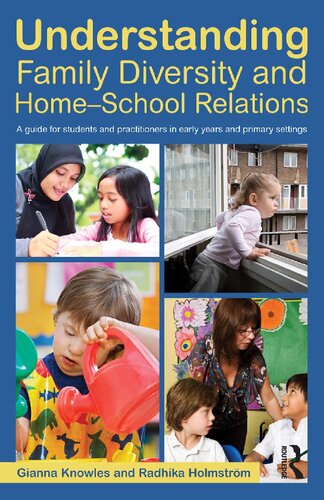

Most ebook files are in PDF format, so you can easily read them using various software such as Foxit Reader or directly on the Google Chrome browser.
Some ebook files are released by publishers in other formats such as .awz, .mobi, .epub, .fb2, etc. You may need to install specific software to read these formats on mobile/PC, such as Calibre.
Please read the tutorial at this link: https://ebookbell.com/faq
We offer FREE conversion to the popular formats you request; however, this may take some time. Therefore, right after payment, please email us, and we will try to provide the service as quickly as possible.
For some exceptional file formats or broken links (if any), please refrain from opening any disputes. Instead, email us first, and we will try to assist within a maximum of 6 hours.
EbookBell Team

4.8
104 reviewsHow can adults in Early Years settings and primary schools fully embrace the diverse nature of family life of the children they are working with?
This essential text will help students and those already working with children to understand both theoretically and practically, what may constitute a ‘family’. It explores how to build relationships with a child’s family to ensure early years settings and schools are working in partnership with children’s home environments, thereby supporting the best possible learning outcomes for children.
It will help the reader to develop their skills, knowledge and understanding of their professional practice in education, and chapter by chapter explores the challenges that may be experienced in working with the diverse nature of family life in the UK, including:
Understanding Family Diversity and Home-School Relations is engagingly practical, using case study examples throughout, and providing reflective activities to help the reader consider how to develop their practice in relation to the insights this book provides. It is a unique road-map to understanding pupils’ backgrounds, attitudes and culture and will be essential reading for any student undertaking relevant Foundation and BA Degrees, including those in initial teacher training, taking post-graduate qualifications or as part of a practitioner’s professional development.